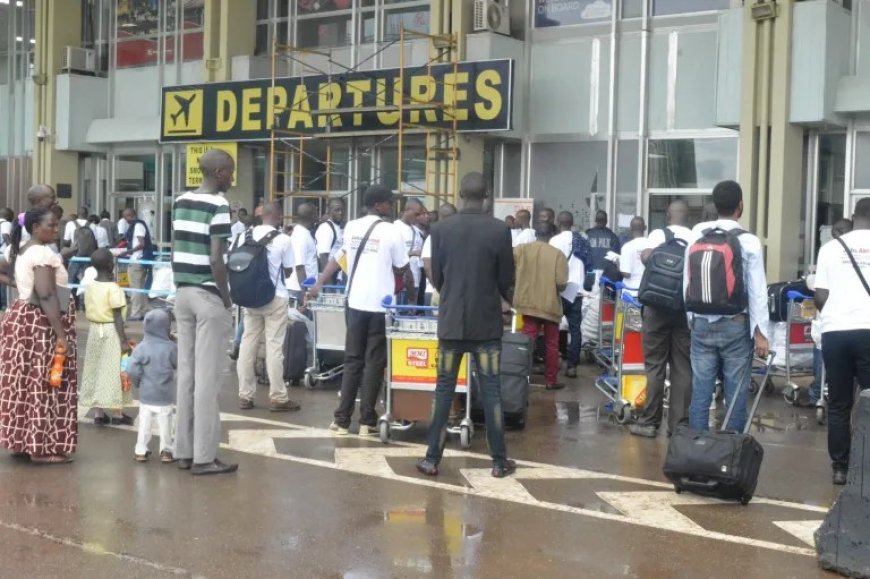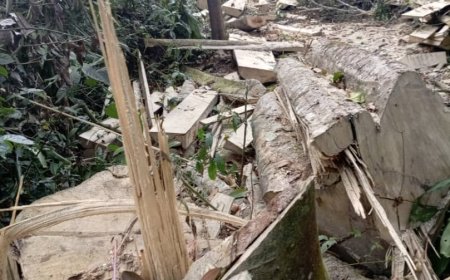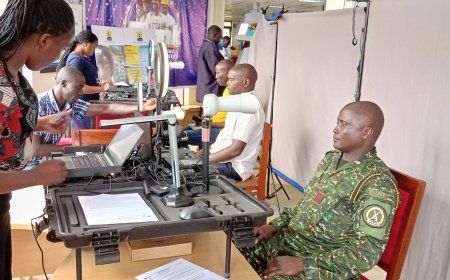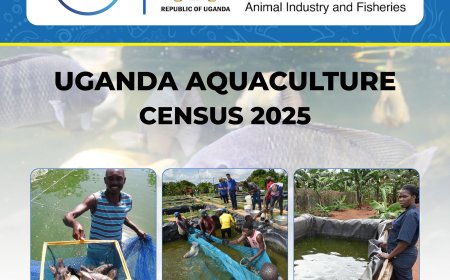Whistle Blowers Sound Alarm: A Statement of Concern to the Ministry of Gender, Labour, and Social Development Over Failed Migrant Worker Programs
Ignoring these voices will only perpetuate the failures of the past. But if heeded, this call for reform could mark the beginning of a new chapter — one in which Uganda’s migrant workforce is not only heard but respected, represented, and protected.

In a strongly worded and meticulously detailed statement, The Whistle Blowers — a coalition of concerned Ugandan migrant workers living and working abroad — have expressed deep frustration over the Ministry of Gender, Labour, and Social Development’s persistent failure to meaningfully engage migrant workers in designing and implementing programs meant for their welfare. The group warns that unless the Ministry begins to prioritize transparency, stakeholder involvement, and genuine accountability, the cycle of failed interventions and exploitative practices will continue to harm the very people these programs are intended to support.
The Whistle Blowers have laid out a damning audit of at least thirteen major initiatives rolled out over the years, each of which they argue collapsed under the weight of poor planning, exclusion of migrant voices, and veiled intentions that prioritized profit over people.
1. The Embassy Link Initiative
Designed to facilitate direct communication between migrant workers and Ugandan embassies abroad, this initiative faltered early. The informality of most migrant workers’ employment situations wasn’t factored in, making the embassy structure ill-equipped to handle their diverse and urgent needs.
2. $70 Fee Through Recruitment Agencies
This collection scheme — spearheaded by certain officials and agency leaders like Mr. Yasin and UAERA — faced a public outcry and ultimately collapsed amid allegations of greed and mismanagement.
3. $40 Contribution Program
Following the backlash of the $70 scheme, this scaled-down version also failed due to lack of consultation with migrant workers and persistent accountability issues.
4. Mandatory NSSF Contributions
Despite being forced to contribute, migrant workers remain unrepresented on the NSSF board and lack a clear mechanism to access their savings. As a result, the program continues to "limp," lacking credibility and full implementation.
5. SPADE Insurance Scheme
The Insurance Regulatory Authority’s attempt to enforce contributions through a sole insurer — SPADE — was met with strong resistance from migrant workers, who questioned the legality and ethical vetting of such a monopolistic move.
6. Migrant Workers App
An app introduced to automate support services for migrant workers quickly collapsed. Its impersonal approach and reliance on bots failed to address the nuanced and often emotional challenges migrant workers face.
7. Sakan Shelter Initiative
Sakan, launched in Saudi Arabia, proposed charging agencies 150 Riyals daily to shelter distressed workers. The plan failed, seen as another exploitative model that marginalized the voices of those it was meant to serve. It was later replaced by Semasco, which similarly failed to uphold migrant worker dignity.
8. Yellow Book Airport Fee
A proposed UGX 20,000 fee collected at the airport, pushed by UAERA, failed due to exclusion of migrant worker leaders and lack of clarity on how the funds would be used.
9. $30 Embassy Welfare Fee
Benchmarking from the Philippines, this initiative collected $30 per worker. However, the money was funneled into the government’s consolidated fund, making it inaccessible for actual welfare needs and reducing migrant workers to a form of debt bondage.
10. Reception Center at Entebbe
Supposed to assist returning workers, this center instead became notorious for whitewashing cases of torture and abuse. Its exclusion of migrant leadership further discredited its operations.
11. Ministry Desk at the Airport
Initially created to curb human trafficking, the desk was soon found aiding the very crime it sought to prevent. The staff were implicated in corrupt practices, and the project was dismantled in disgrace.
12. Migrant Workers Support Center
Launched without proper engagement with migrant leadership, this center risks repeating past mistakes. Questions remain about its funding model, sustainability, and whether it truly reflects the needs of migrant workers.
13. UAERA-ELAU Split
The ongoing rift between UAERA and ELAU — two major recruitment entities — has undermined industry cohesion and left migrant workers with less institutional support, raising questions about whose interests these bodies truly serve.
The Whistle Blowers are not merely airing grievances; they are calling for reform.
They demand:
Full recognition and inclusion of Ugandan migrant worker leadership in all program design and implementation.
Transparency and accountability in how funds are collected, managed, and used.
Human-centered approaches that go beyond tokenistic tech solutions or exploitative funding schemes.
Structural reforms in both the public and private recruitment sectors to prioritize worker welfare over profits.
The statement from the Whistle Blowers is a wake-up call to the Ministry of Gender, Labour, and Social Development. Uganda’s migrant workers are not passive recipients of aid — they are active stakeholders with valuable insights and lived experience. If Uganda truly wants to protect and empower its citizens abroad, it must engage them as partners, not subjects.
Ignoring these voices will only perpetuate the failures of the past. But if heeded, this call for reform could mark the beginning of a new chapter — one in which Uganda’s migrant workforce is not only heard but respected, represented, and protected.

















































































































